Tale of Cinema (2005): the movie within the movie | la película dentro de la película

Escrita y dirigida por Hong Sang-soo
The title of this post will make you think of Inception, Nolan's movie, or some literary works that make use of metafiction and those books that contain the story of a book that in turn is the same book you are reading. Well, yes, it's something similar, not that complicated, but it can cause confusion for those who aren't used to cinema from this part of the world; the truth is that this movie is partly the movie of a movie.
El título de este post les hará pensar en Inception, la película de Nolan, o en algunas obras literarias que hacen uso de la metaficción y de esos libros que contienen la historia de un libro que a su vez es el mismo libro que están leyendo. Bueno, sí, es algo parecido, no tan complicado, pero puede generar confusión a aquellos que no están acostumbrados al cine de esta parte del mundo; lo cierto es que esta película es parciamente la película de una película.
Written and directed by Hong Sang-soo (who I met from The woman who ran), the film Tale of Cinema is a drama film made in South Korea and released in 2005. The story could be divided into two parts, although the separation is not identified as in most cases. First we see a young man who, after a brief encounter with his older brother, decides not to accompany him and instead decides to wander through different streets, in one of which he runs into an ex-girlfriend. Somewhat confused and clumsy, they make an appointment for later and when they see each other, a series of feelings surface between them. They are not lovers doomed to separation who have missed each other, in fact she demands some things from her with just reason. It's not that he feels a huge desire to see her, but a part of him wants a little company. That's why they decide to go for dinner and a little drink, but then the conversation turns a bit gloomy and what promised to be an evening of reunion and casual sex ends up turning into a very dramatic experience for both of them.
Escrita y dirigida por Hong Sang-soo (a quien conocí por The woman who ran), la película Tale of Cinema es una película dramática realizada en Corea del Sur y estrenada en 2005. La historia podría dividirse en dos partes, aunque la separación no está identificada como en la mayoría de los casos. Primero vemos a un joven que tras un breve encuentro con su hermano mayor decide no acompañarlo y en cambio se decide a vagar por distintas calles, en una de las cuales se topa con una ex novia. Algo confundidos y torpes concertan una cita para más tarde y cuando se ven una serie de sentimientos afloran entre ellos. No son los amantes condenados a la separación que se han extrañado, de hecho ella la reclama algunas cosas con justa razón. Él no es que sienta deseos enormes de verla, pero una parte de él desea un poco de compañía. Es por eso que deciden ir a cenar y a beber un poco, pero luego la conversación se torna un poco sombría y lo que prometía ser una velada de reencuentro y de sexo casual acaba convirtiéndose en una experiencia muy dramática para ambos.
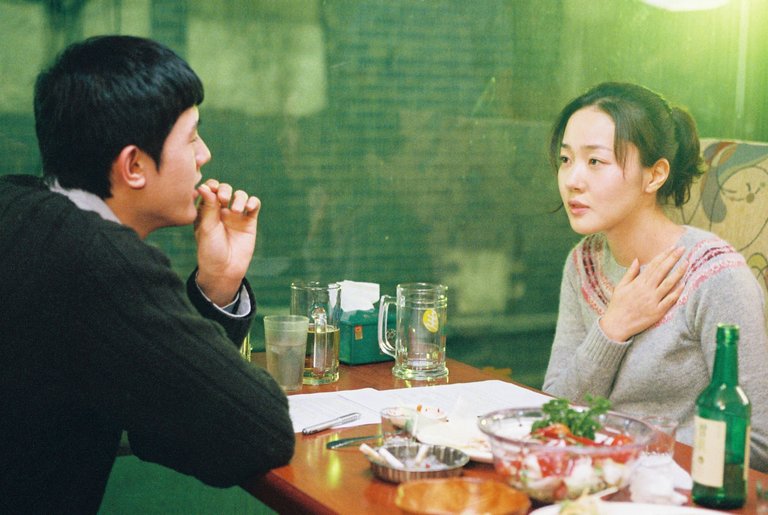
The fact is that the young man, fed up with continuing to live in a world that he does not fully understand, wants to take his own life and tells the girl without knowing that she has a similar feeling and that is why she offers to accompany him. They then rent a room in a motel and decide to take a large amount of sleeping pills to never wake up.
El caso es que el joven, harto de seguir viviendo en un mundo que no comprende del todo, quiere quitarse la vida y se lo cuenta a la chica sin saber que ella tiene un sentimiento similar y por eso se ofrece a acompañarlo. Arriendan entonces una habitación en un motel y deciden tomar una gran cantidad de somníferos para no despertar jamás.
I'm not going to tell you how that story continues, in which there is more than one surprise, but a few minutes later we see a scene in which the same girl walks down the street. Another subject - not the young man in the first part - recognizes her and follows her until he reaches her and then calls her by a different name. Confusion invades us for a second, is it the same woman? is it her sister? is she pretending to be someone else? has she changed her identity? After a few lines of dialogue we learn that it is actually an actress who has just made a movie: everything we saw in the first part. What I liked about this is that there's no warning or clear signaling between the end of the first part and the start of the second. You have to pay attention to those minutes to be able to understand that we have just seen a movie within the movie and that now the conversation between the girl and this new young man takes place in the real world; that is to say, the real world inside the film that we see, is it clear?
No les voy a contar cómo sigue esa historia, en la que hay más de una sorpresa, pero pocos minutos después vemos una escena en la que la misma chica camina por la calle. Otro sujeto - no el joven de la primera parte - la reconoce y la sigue hasta alcanzarla y entonces la llama por un nombre distinto. La confusión nos invade un segundo, ¿es la misma mujer? ¿es su hermana? ¿se hace pasar por alguien más? ¿ha cambiado de identidad? Tras unas líneas de diálogo nos enteramos de que en realidad se trata de una actriz que acaba de hacer una película: todo lo que vimos en la primera parte. Lo que me gustó de esto es que no hay una advertencia ni una señalización clara entre el fin de la primera parte y el inicio de la segunda. Hay que estar atento a esos minutos para poder entender que acabamos de ver una película dentro de la película y que ahora la conversación entre la chica y este nuevo joven se desarrolla en el mundo real; es decir el mundo real dentro de la película que vemos, ¿se entiende?

For added drama, the director of that film has died and the new subject along with the actress are heading to a meeting to honor him along with other people. In one scene - also one of my favorites - the man confesses to the actress that the movie they saw, the one she starred in, is actually based on his life. The man, a film school classmate of the deceased director, told him some things and then the director wrote the film in which the actress starred; therefore, the protagonist's wishes to commit suicide are actually the wishes of this man who is now having dinner with the actress. Those parallels are interesting, but above all they raise a central dilemma, can an artist take anyone's life and turn it into art without their consent? Is the artist due to art and nothing else? Did the director have the right to make a movie out of what his friend had told him?
Para mayor drama, el director de esa película ha muerto y el nuevo sujeto junto a la actriz se dirigen a una reunión para honrarlo junto a otras personas. En una escena - también de mis favoritas - el hombre le confiesa a la actriz que la película que vieron, la que ella protagonizó, en realidad está basada en su vida. El hombre, compañero de la escuela de cine del director fallecido, le contó algunas cosas a éste y entonces el director escribió la película en la que actuó la actriz; por lo tanto, los deseos de suicidarse del protagonista son en realidad los deseos de este hombre que ahora cena con la actriz. Esos paralelismos son interesantes, pero sobre todo suscitan un dilema central, ¿puede un artista tomar la vida de cualquier persona y convertirla en arte sin el consentimiento de ésta? ¿se debe el artista al arte y nada más? ¿tenía el director el derecho de hacer una película con lo que su amigo le había contado?
So the film is not only a different narrative experiment than usual, but it is deeply reflective on the fine line between art and the lives of others. With a minimalist style and a simple and honest script, Hong Sang-soo manages to create a short but very interesting story, have you seen this movie? Do you think that the artist can make art from the lives of others without their consent? I read you in the comments.
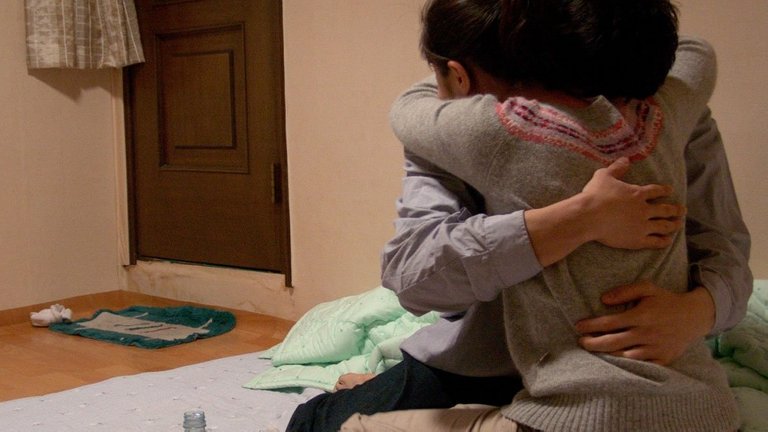
Así que la película no es solamente un experimento narrativo diferente a lo acostumbrado sino que es profundamente reflexiva sobre la delgada línea entre el arte y la vida ajena. Con un estilo minimalista y un guión sencillo y honesto Hong Sang-soo consigue crear una historia breve pero muy interesante, ¿han visto esta película? ¿creen que el artista puede hacer arte a partir de la vida de los demás sin tener su consentimiento? los leo en los comentarios.
Reviewed by | Reseñado por @cristiancaicedo
Other posts that may interest you | Otros posts que pueden interesarte:
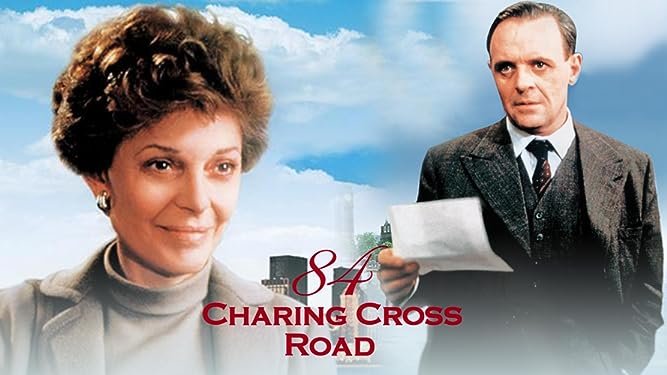  |
|---|
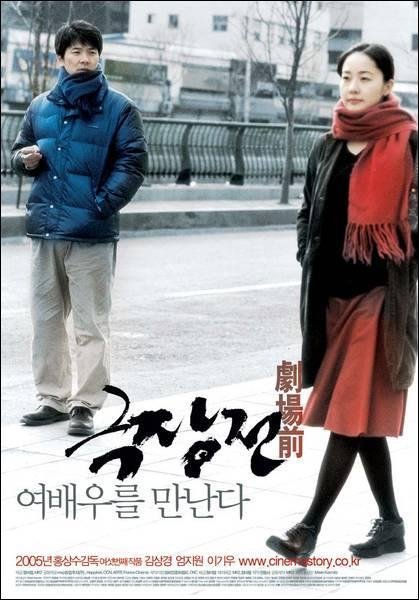
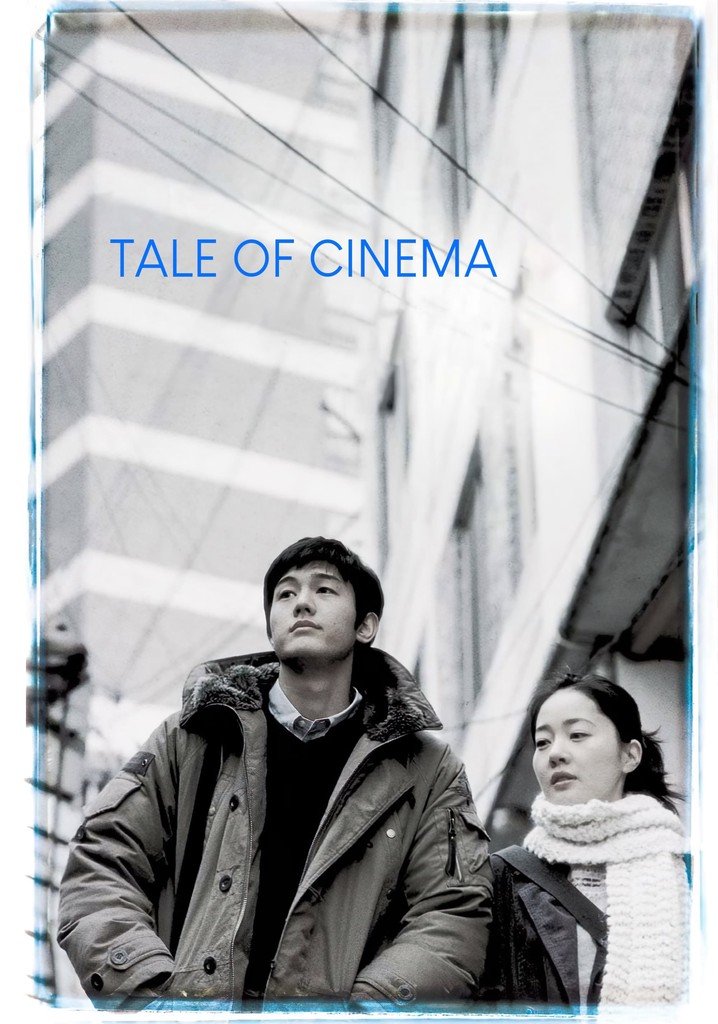
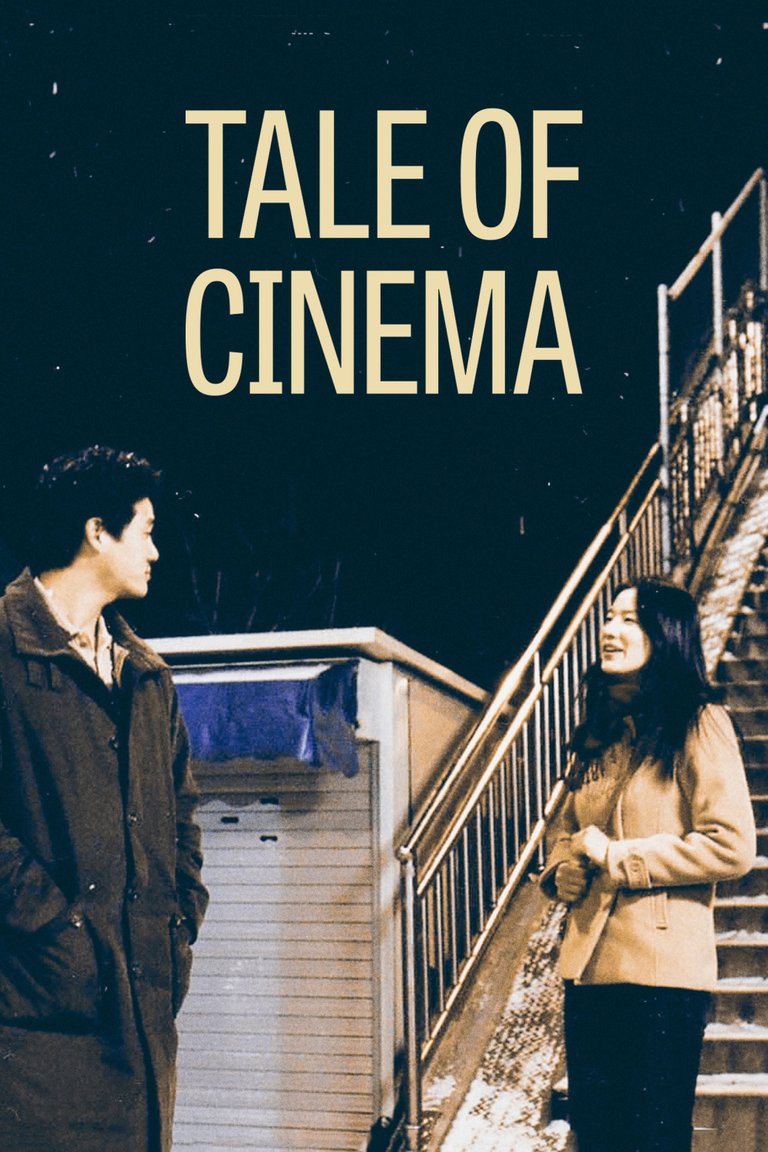
Sigue, contacta y se parte del testigo en: // Follow, contact and be part of the witness in:
Mira que interesante planteamiento ¡los coreanos lo volvieron a hacer! je,je, siempre sorprendiendo con sus historias. Pero esta muy interesante el tema del suicidio y la realidad que existe una vez que "se baja el telón". Si la encuentro por allí la veo. Saludos.
Si la ves, quedo atento a tu reseña. Saludos.
El drama es un género que me gusta mucho y está sumamente interesante esta historia. Hay que verla muy concentrado por qué si no uno se pierde rápido, pero nada mejor que una producción que al final te deje así bien sorprendido. No la conocía, buscaré en qué plataforma se encuentra y si tengo tiempo la estare mirando. Realmente, me llama mucho la atención.
Ciertamente hay que estar concentrado en este tipo de películas y espero que la puedas ver pronto. Saludos.
Wow! Es un verdadero dilema. Se entiende perfectamente tu planteamiento sobre la historia. Ahora bien,en cuanto a tu pregunta. No sé si se le pueda atribuir como un derecho, sin embargo, puede que el drama impacte sobre otras personas que viven lo mismo y persuada de algún modo para evitar tragedia. Es un tema complejo si lo vemos desde el punto de vista lucrativo, allí sería distinta la cosa. Eso pienso. Gusto en leerte, interesante historia.
Es cierto, la parte monetaria complica un poco más las cosas y ese tema de la empatía o el mensaje que puede generar en otros también es importante. Muchas gracias por leerme y responder mis preguntas. Saludos.
Que esperas para unirte a nuestro trail de curación y formar parte del "proyecto CAPYBARAEXCHANGE", tu casa de cambio, rapida, confiable y segura